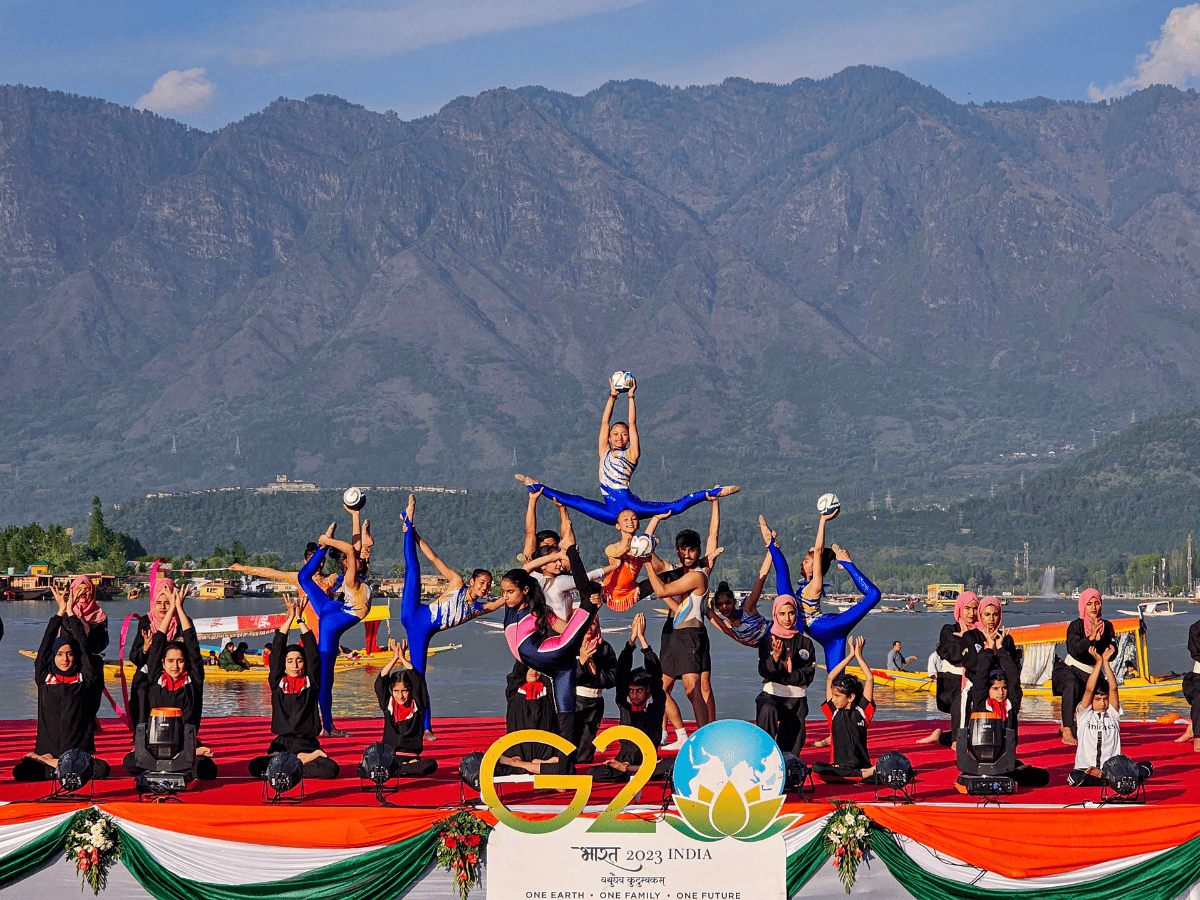
New Delhi: The G20 meeting in Srinagar, beginning Monday, is an opportunity for India to showcase the changed scenario in Jammu and Kashmir which was earlier under the shadow of Pakistan-sponsored terrorism, Union minister Jitendra Singh said.
The third meeting of the G20 Tourism Working Group will be held on Monday to finalise the ministerial communique for the ministerial meeting in Goa later this year.
The G20 meeting would also give the delegates an opportunity to see for themselves the transformation that has taken place in Jammu and Kashmir and try to correlate with the projections in the international media by “self-styled commentators”.
“The G20 delegates will be the true messengers of not only Kashmir but also India as has been envisaged by Prime Minister Narendra Modi,” Singh, the Minister of State in the Prime Minister’s Office, said.
The G20 meeting will be formally inaugurated on Tuesday by Union Tourism Minister G Kishen Reddy, Singh and Jammu and Kashmir Lt Governor Manoj Sinha.
“This is an indication of the fact that now Jammu and Kashmir as a whole and the Kashmir Valley, which a few years ago was believed to be a kind of a nerve centre of terrorism and Pak-sponsored militancy, is now in the same streamline of activity as any other city in the country. Be it the G20 in Hyderabad, Gurgaon or elsewhere. It is the same way happening in Srinagar,” Singh told PTI in a video interview.
“It is also an opportunity for India to showcase the changed scenario of Jammu and Kashmir under Modi because of his very committed approach and courage of conviction,” said Singh, who also holds the portfolios of Science and Technology; Personnel, Public Grievances and Pensions.
He said the prime minister’s outreach efforts for the region also proved to be a catalyst for change as he insisted on special ministerial visits to Jammu and Kashmir to follow up on the development initiatives in the region.
“The change has also happened at the level of the common man walking on the streets of Srinagar. He now wants to move on. He has seen two generations sacrificed at the altar of terrorism, he is not prepared to do so anymore,” Singh said.
He said the youth in Kashmir is highly aspirational, well-informed, intelligent and fully aware of the enormous avenues the prime minister has made available to the region.
“The Kashmiri youth does not want to miss the bus and wants to be a part of the changes taking place in the region,” he said, adding the people of Jammu and Kashmir are looking forward to the G20 meeting with great enthusiasm.
“A few years ago, it was almost taboo to visit Kashmir. Such events (conferences and meetings) had virtually come to a halt since 1990. But this year, maximum excitement has been generated by the venue of Srinagar as far as all the G20 meetings put together are concerned,” he said.
Asked about China’s decision to skip the G20 meeting at Srinagar, Singh said it would be appropriate for the Ministry of External Affairs to comment on the matter.
Srinagar under watchful eyes
Counter-drone teams of the elite NSG are scanning the sky, marine commandos of the navy patrolling the picturesque Dal Lake and scores of security personnel are on vigil on the ground to ensure a safe and secure G20 meeting beginning here on Monday, officials said.
Preparing to receive at least 60 delegates and 20 journalists from different parts of the world, the authorities in militancy-hit Jammu and Kashmir have made elaborate arrangements for the third G20 Tourism Working Group meeting at the Sher-e-Kashmir International Convention Centre (SKICC).
This is the first international meeting being held in Kashmir after the abrogation of Article 370 and the bifurcation of the erstwhile state into two Union Territories – Jammu and Kashmir, and Ladakh.
Aiming to ensure minimum policing and maximum security, the Jammu and Kashmir Police has roped in the army to cover the higher reaches of the Zabarwan Range overlooking the meeting venue and accommodation facilities for the guests.
Thirty companies of the Central Reserve Police Force (CRPF), which had earlier been taken out of Jammu and Kashmir for election duty in the rest of the country, have since been recalled to further strengthen security in the valley, where intelligence intercepts have suggested the presence of improvised explosive devices or a vehicle-based IED.
Officials said teams of the National Security Guard (NSG) counter-drone unit have been pressed into service to ensure that no unwanted aerial intrusion takes place. A hit team of the elite “Black Cat” commandos is in readiness to deal with any terrorist incident and a hostage-like situation.
“MARCOS teams will be patrolling the Dal Lake along with personnel from the river wing of the Jammu and Kashmir Police and CRPF as the convention centre is located on the bank of the water body,” an official involved with the security preparations said.
The marine commandos, or MARCOS, of the Indian Navy, have been stationed at the Wulur Lake in the valley since the mid-1990s to prevent any infiltration from the Line of Control as terrorists had been using the water body to enter into the hinterland.
The officials said that a proposed visit of the delegation to Gulmarg, also known as Switzerland of Asia, had to be dropped in view of the paucity of time.
They said the delegates would visit Pari Mahal, Chesmashai and other Mughal gardens, besides taking a walk on the renovated Polo View Market, before leaving Kashmir Valley on Wednesday.
The first working group meeting on tourism was held in the Rann of Kutch in Gujarat in February and the second one in West Bengal’s Siliguri in April.



